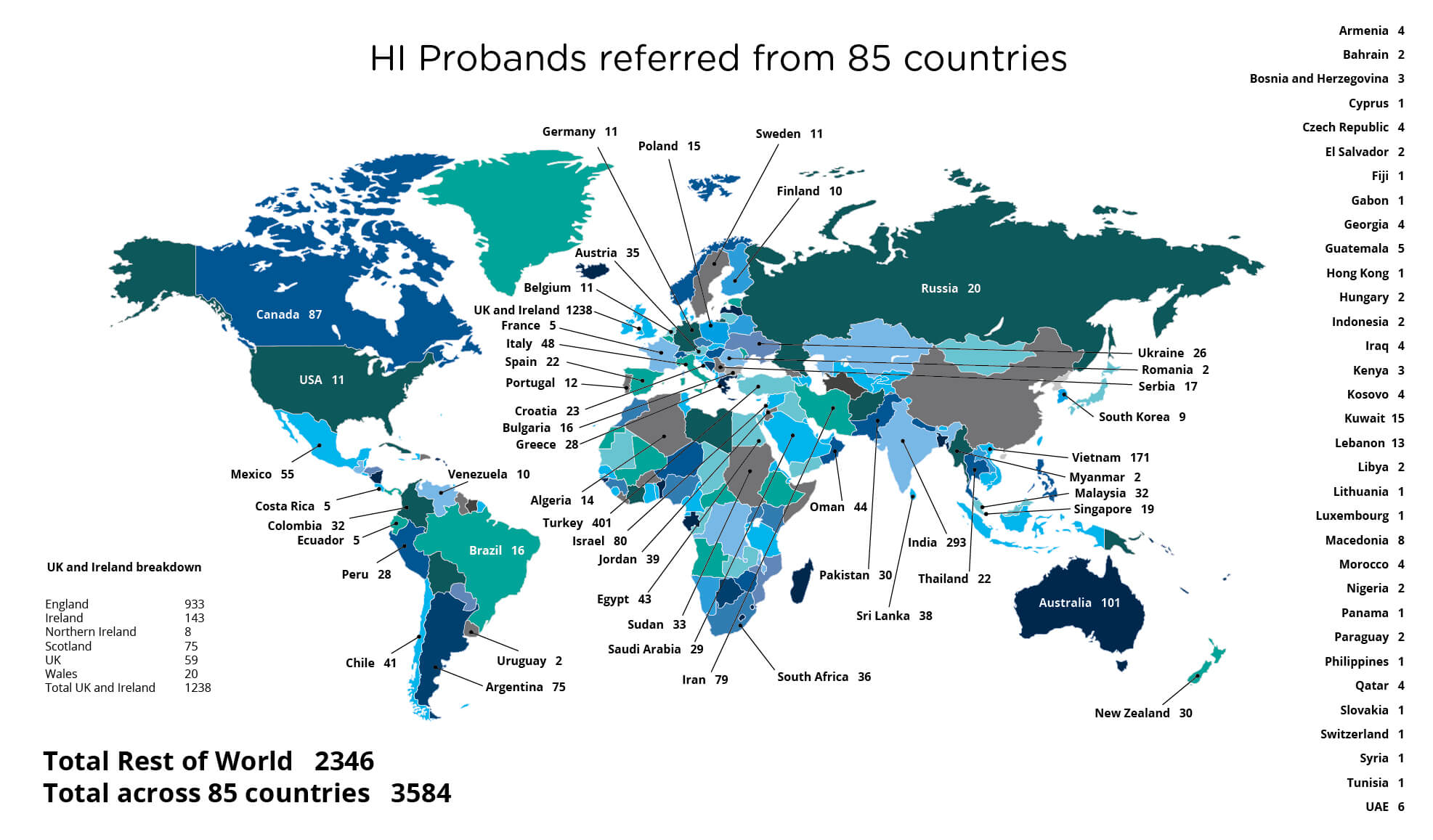Congenital hyperinsulinism is the most common cause of persistent low blood sugar (hypoglycaemia) in early infancy, which can be dangerous if not diagnosed and treated promptly. By providing routine genetic testing, we aim to improve patient care by guiding treatment decisions and helping families understand why the condition has occurred.
Since receiving the first referral in 2001, our laboratory has provided genetic testing for more than 5,500 individuals living with congenital hyperinsulinism, representing over 100 countries worldwide.
In 2018, we partnered with Congenital Hyperinsulinism International to establish the Open Hyperinsulinism Genes Project. With their generous support, the costs of genetic testing are now covered for individuals who might otherwise be unable to access screening. This partnership is helping to ensure that no one with congenital hyperinsulinism faces barriers to genetic testing. Click here to see a video about this exciting partnership.
Our patient-focused research uses state-of-the-art technology house in GOLD LEAF-accredited laboratories to discover the genes that cause congenital hyperinsulinism in the 50% of families without a genetic diagnosis, to improve variant detection and knowledge of clinical outcomes.
By rapidly bringing our novel research findings into routine genetic testing and working with industrial partners, we aim to improve diagnosis and guide treatment, ensuring that all families can benefit from the latest scientific advances.
Hyperinsulinismgenes.org aims to provide information for patients and professionals on the underlying genetic mechanisms of congenital hyperinsulinism. This website is run by the Congenital Hyperinsulinism research team at the University of Exeter Medical School and the Genomics Laboratory at the Royal Devon University Hospital, Exeter, UK.
